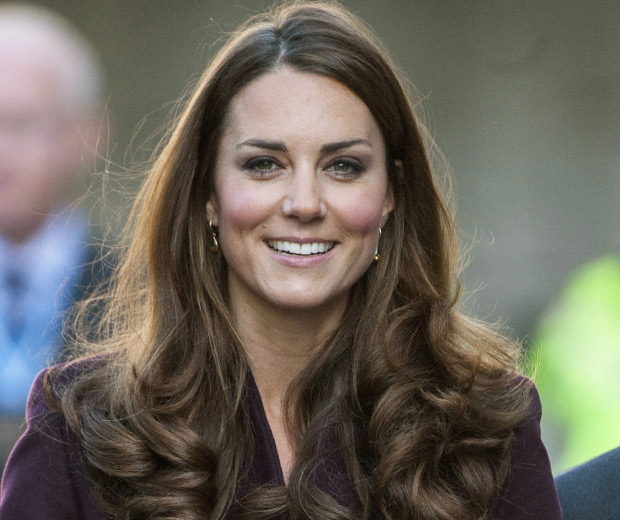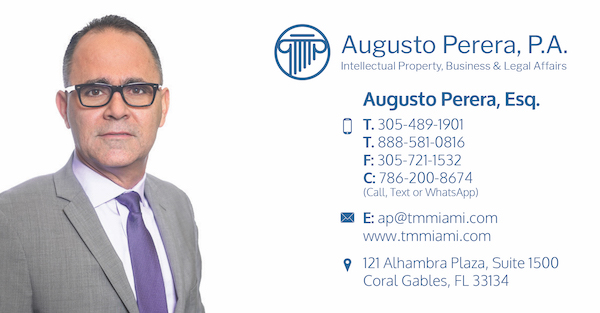The short answer is yes, with written consent. More often than not, small business owners and entrepreneurs decide to use their name or last name to identify their products or services being provided.
Trademark registration will be refused if consists of or comprises a name, portrait, or signature identifying a particular living individual except by his written consent. Trademark Act Section 2(c), 15 U.S.C. §1052(c); TMEP §1206; see In re Nieves & Nieves LLC, 113 USPQ2d 1639, 1649-50 (TTAB 2015); In re Hoefflin, 97 USPQ2d 1174, 1175-76 (TTAB 2010).
A situation that happens often is when a celebrity or a known person, is on the latest news cycle. There are certain business and individuals that feel the need to take advantage and file for trademark protection using the name or nickname of said celebrity or known person without knowing the law, all the time ending on complete failure.
Just recently, on June 2020, an individual filed for trademark protection for “HRH The Duchess of Sussex New Jersey”.
Most of the times, those trademark applications will be rejected, because, under “Section 2(c), a name in a mark identifies a particular living individual if the person bearing the name will be associated with the mark as used on the goods or services because: (1) “the person is so well known that the public would reasonably assume a connection between the person and the goods or services;” or (2) the individual is publicly connected with the business in which the mark is used.” In re Nieves & Nieves LLC, 113 USPQ2d 1639, 1650 (TTAB 2015); see In re Hoefflin, 97 USPQ2d 1174, 1175-76 (TTAB 2010); Krause v. Krause Publ’ns, Inc., 76 USPQ2d 1904, 1909-10 (TTAB 2005).
These applications are also rejected under 15 U.S.C. § 1052 (a) Consists of or comprises immoral, deceptive, or scandalous matter; or matter which may disparage or falsely suggest a connection with persons, living or dead, institutions, beliefs, or national symbols….”
In re Nieves & Nieves LLC, 113 USPQ2d 1639, 1650 (TTAB 2015) Trademark Examining Attorney refused to register Applicant’s mark ROYAL KATE under Section 2(a) of the Trademark Act of 1946, 15 U.S.C. § 1052(a), on the ground that ROYAL KATE falsely suggests a connection with Catherine, Duchess of Cambridge, also known as Kate Middleton. The Trademark Examining Attorney also refused to register Applicant’s mark under Section 2(c) of the Trademark Act, 15 U.S.C. § 1052(c), on the ground that ROYAL KATE consists of a name identifying a particular living individual whose written consent to register the mark is not of record.
On Appeal, The Trademark Trial and Appeal Board (TTAB) affirmed the Examiner’s decision by stating that “ROYAL KATE identifies Kate Middleton whose identity is renowned. By any measure, she is a celebrity, and thus the term ROYAL KATE points uniquely and unmistakably to Kate Middleton. Although Kate Middleton, the Duchess of Cambridge, does not use the name ROYAL KATE, it has become an expression used by the American public (and media) to identify her. We find that the mark ROYAL KATE is the name of a particular living individual, namely, Kate Middleton, and because Kate Middleton has not consented to the use and registration of that name, the Section 2(c) refusal is affirmed.”
The application for “HRH The Duchess of Sussex New Jersey” will suffer the same fate as the ROYAL KATE application.
I have helped countless small to medium sized businesses navigate the intricacies of protecting and using the name, portrait, or signature identifying a particular living individual and trademark law to secure and protect their intellectual property rights. I’d like to help you too by protecting your rights to trademarks, copyrights, and other intellectual property rights in the US and overseas.



